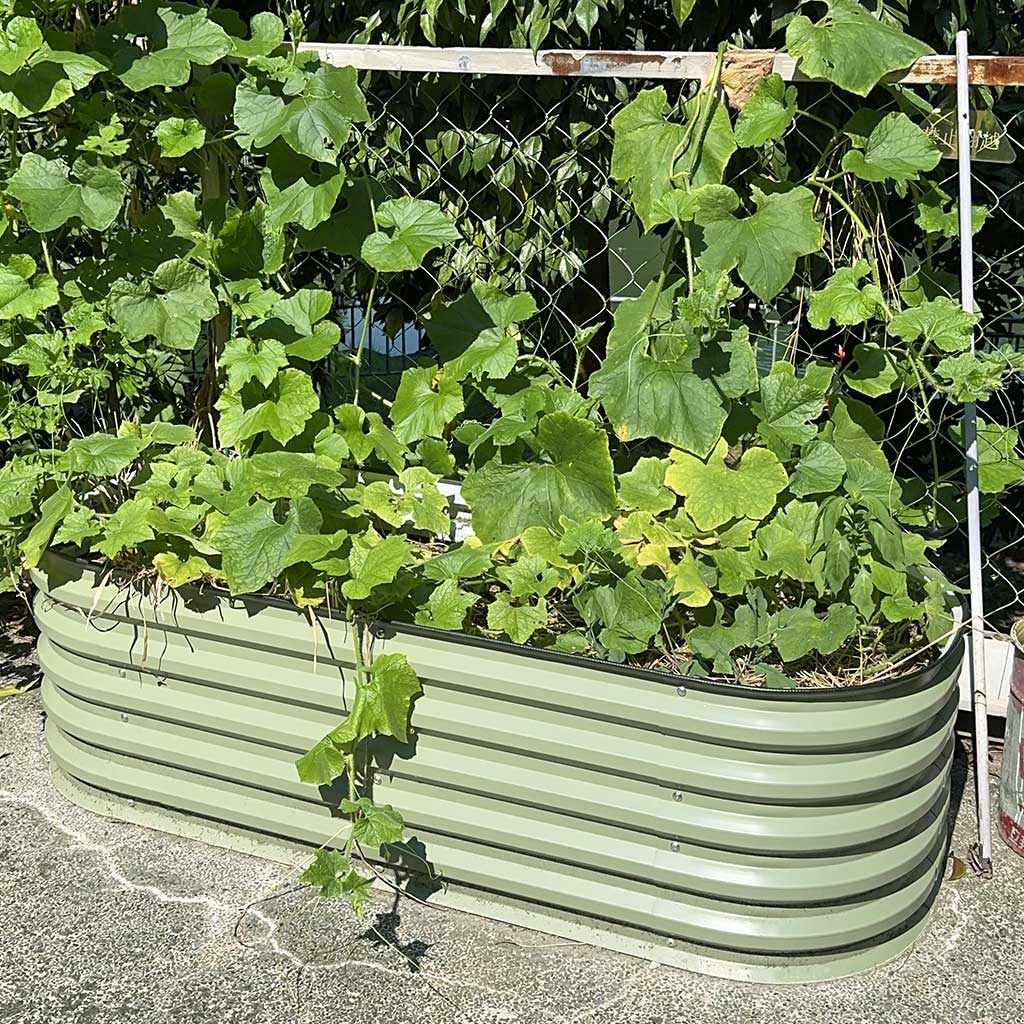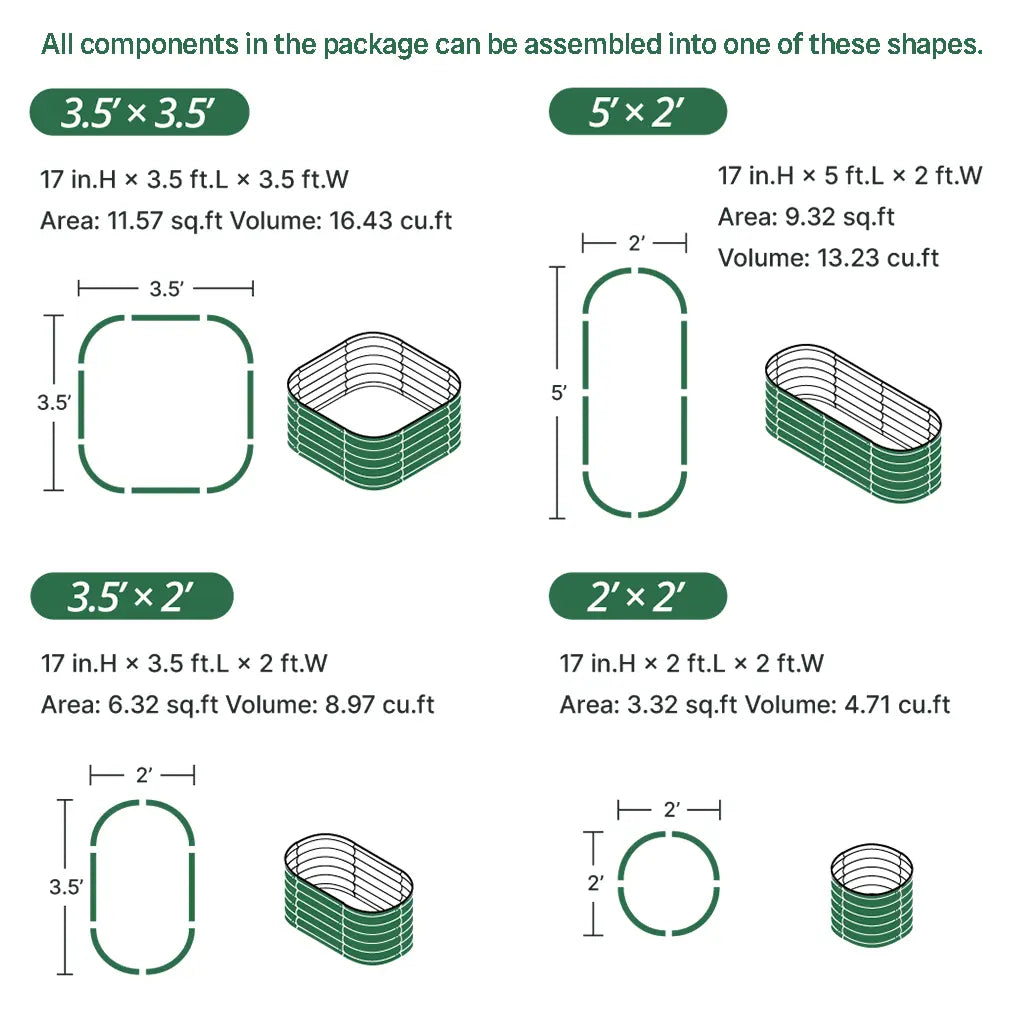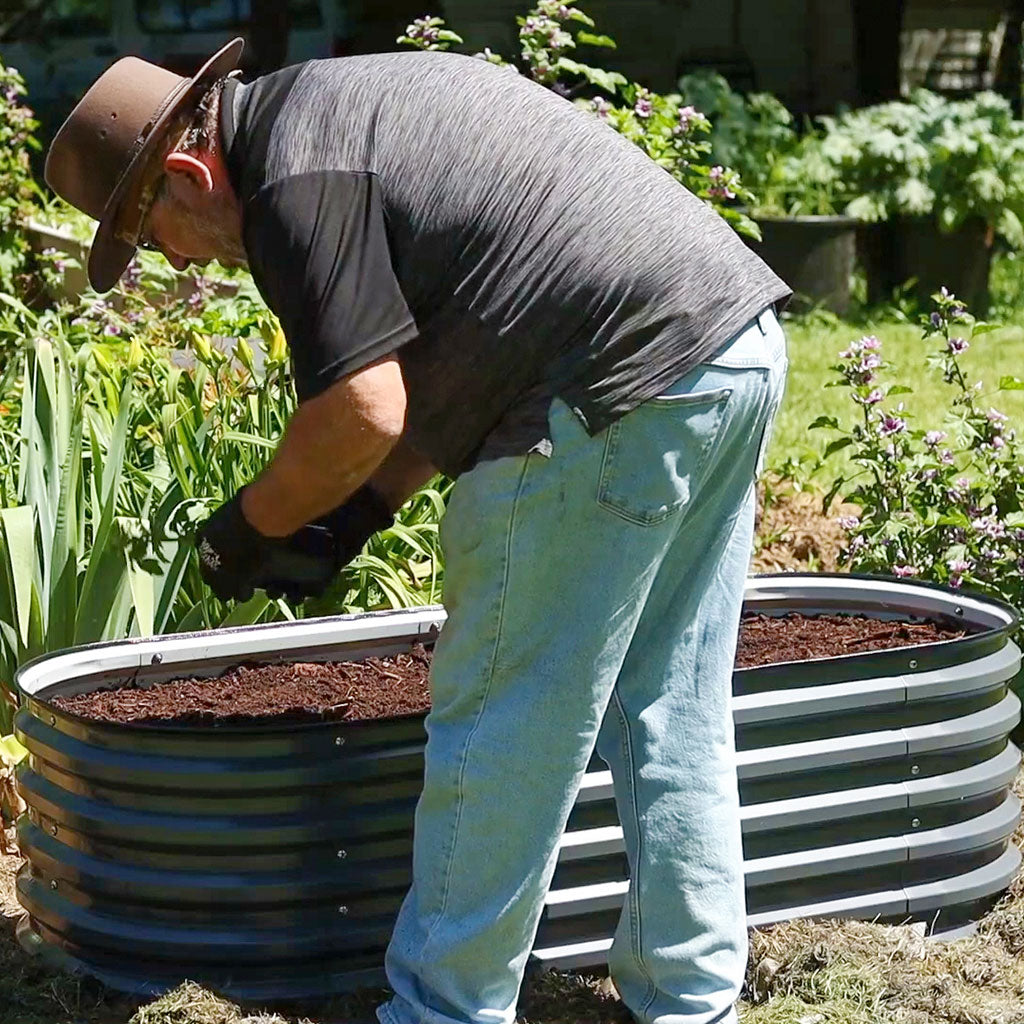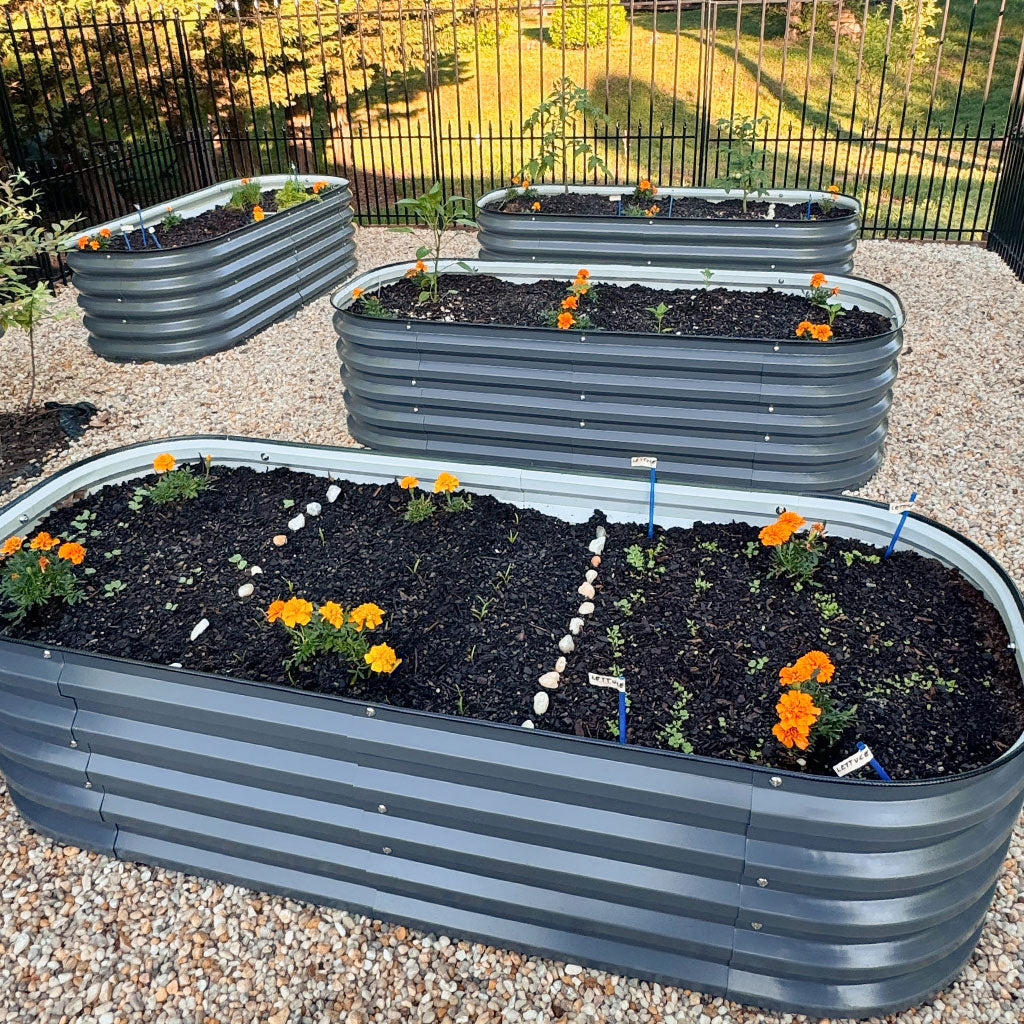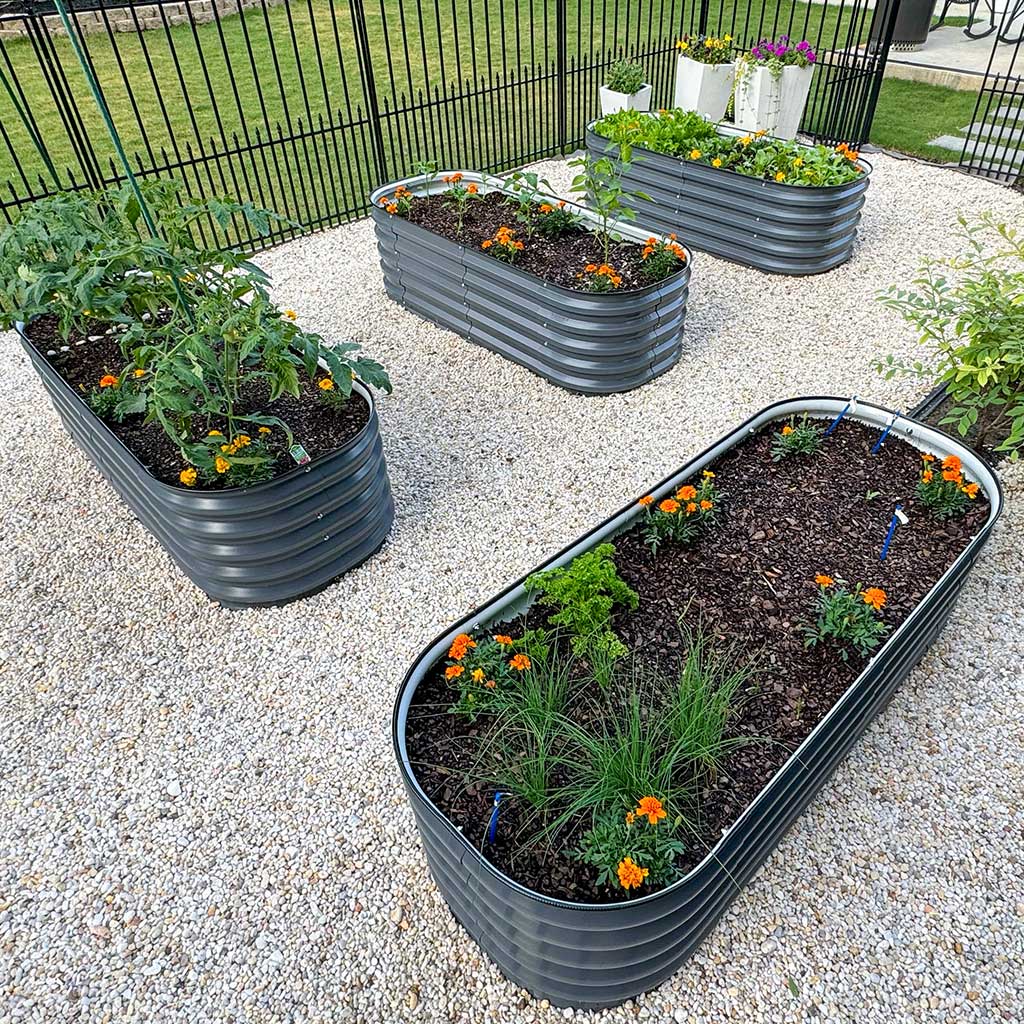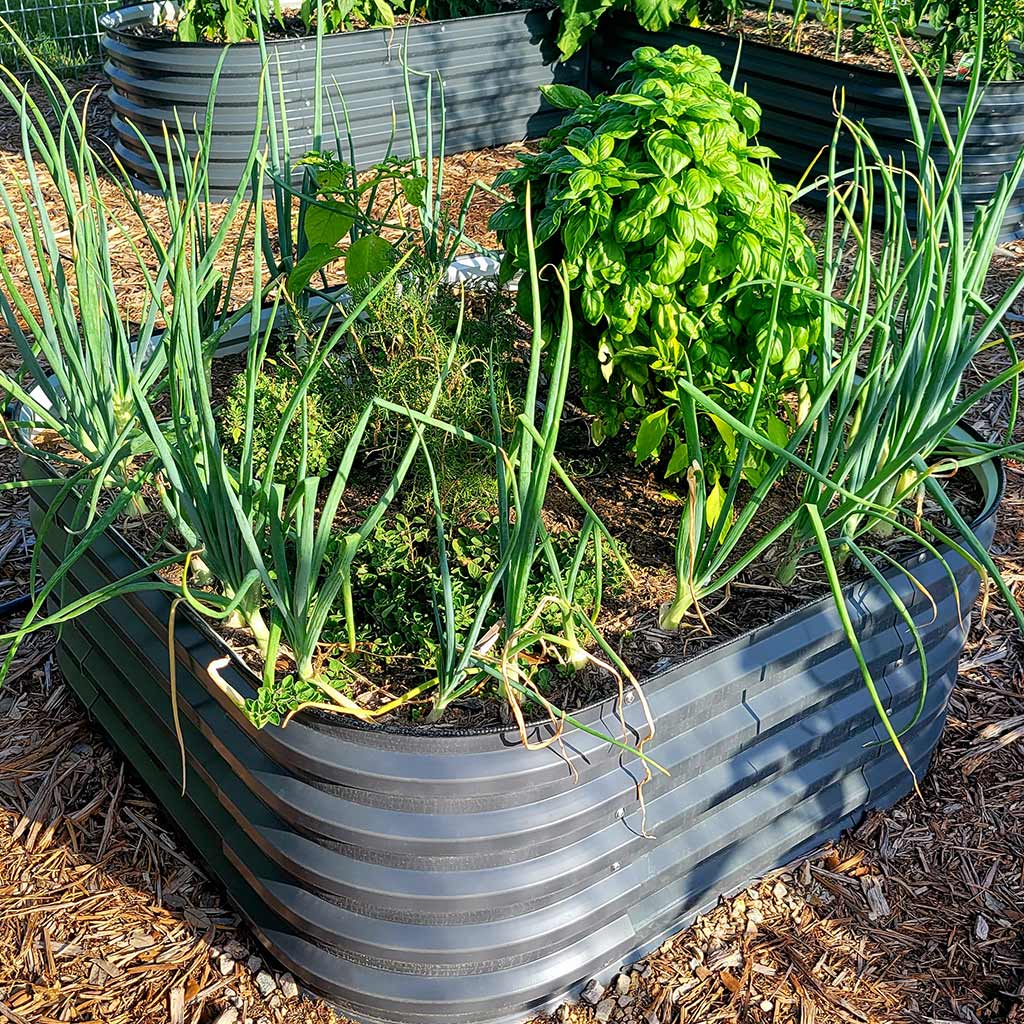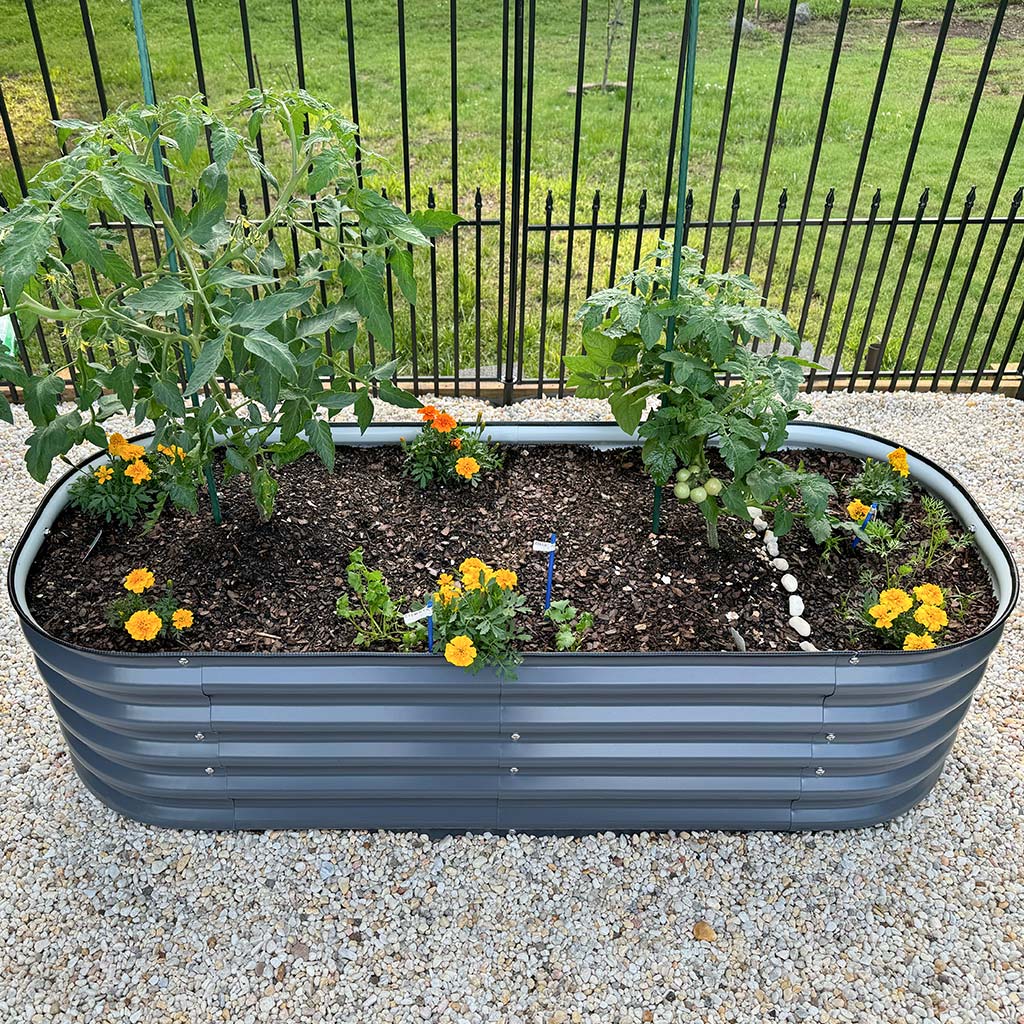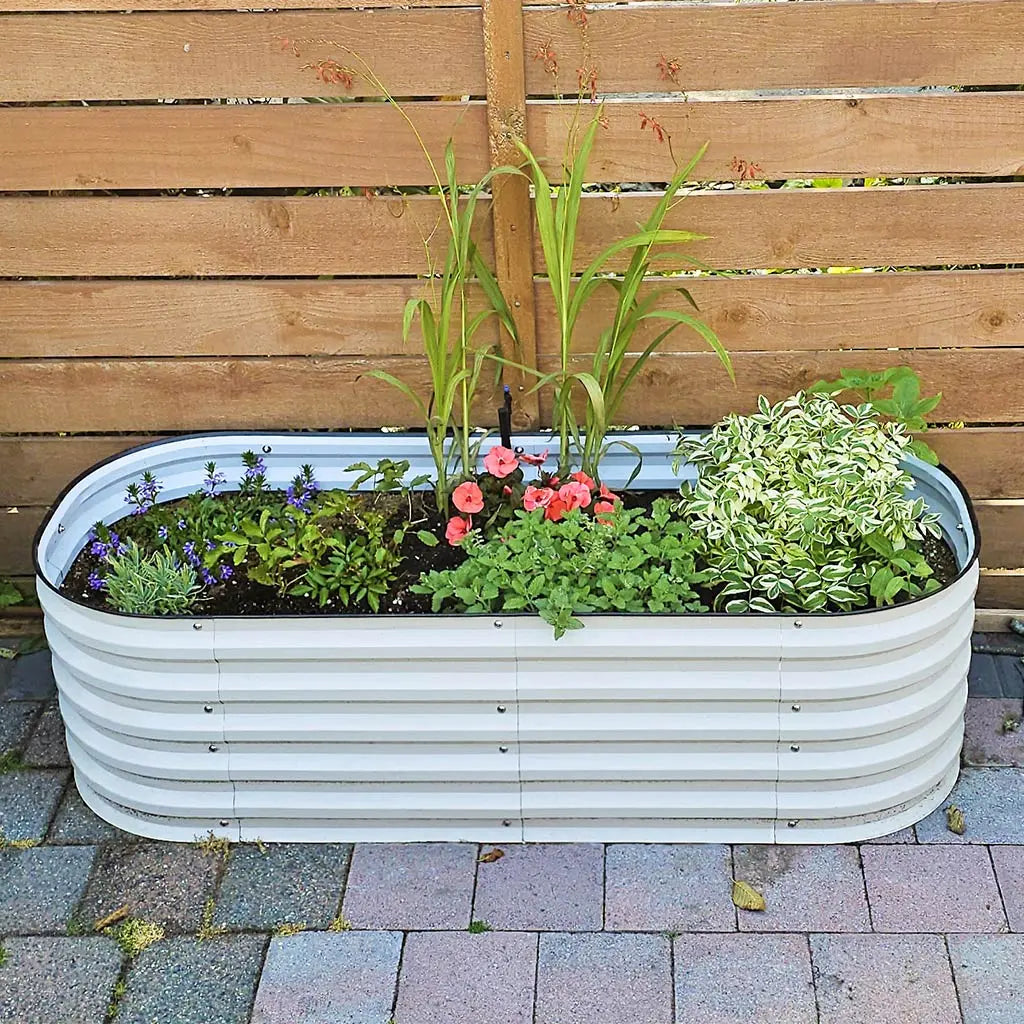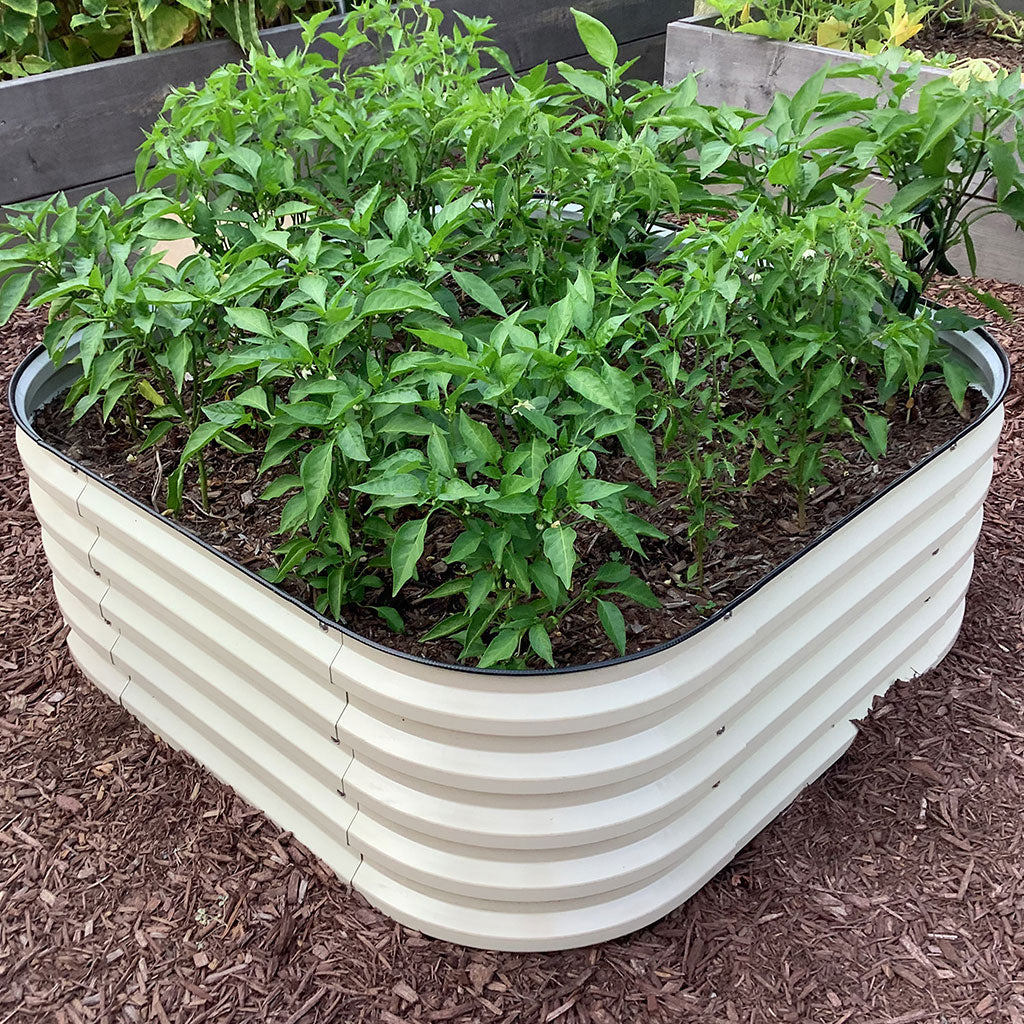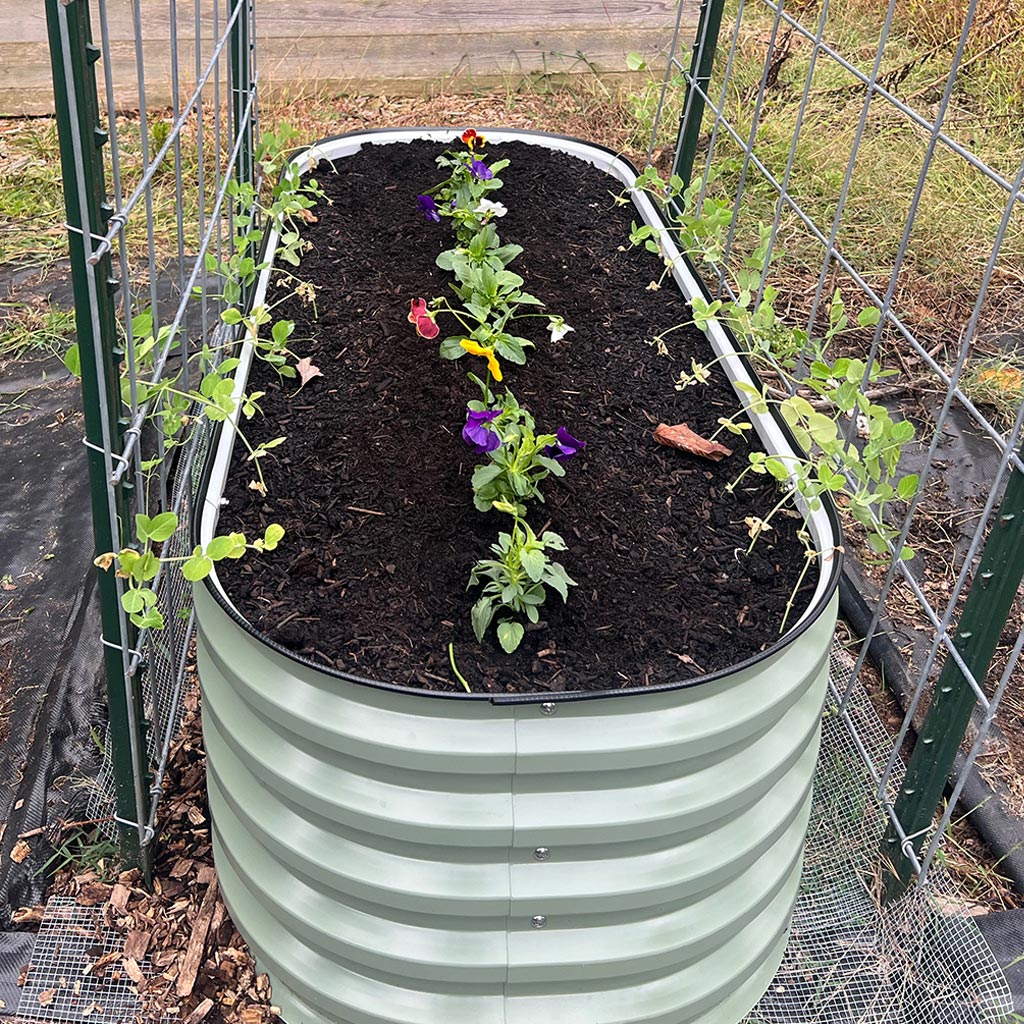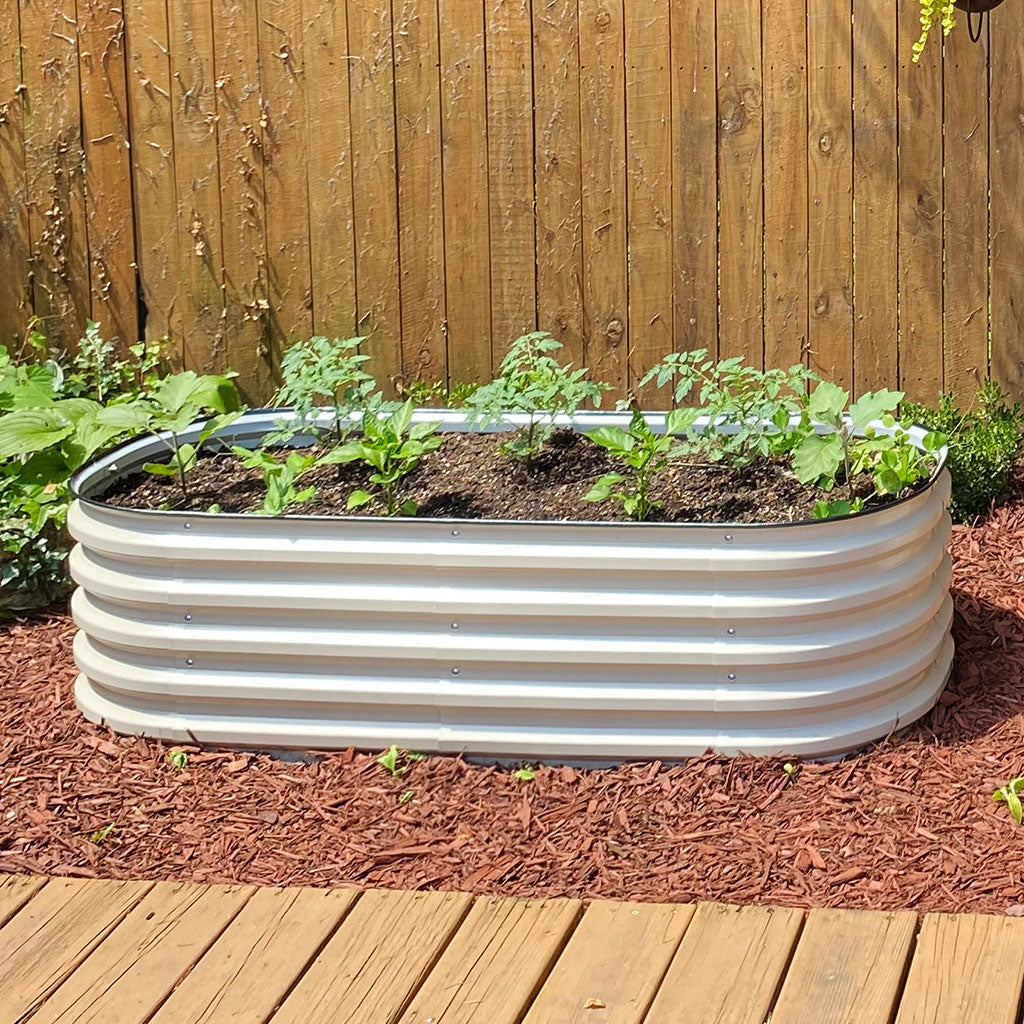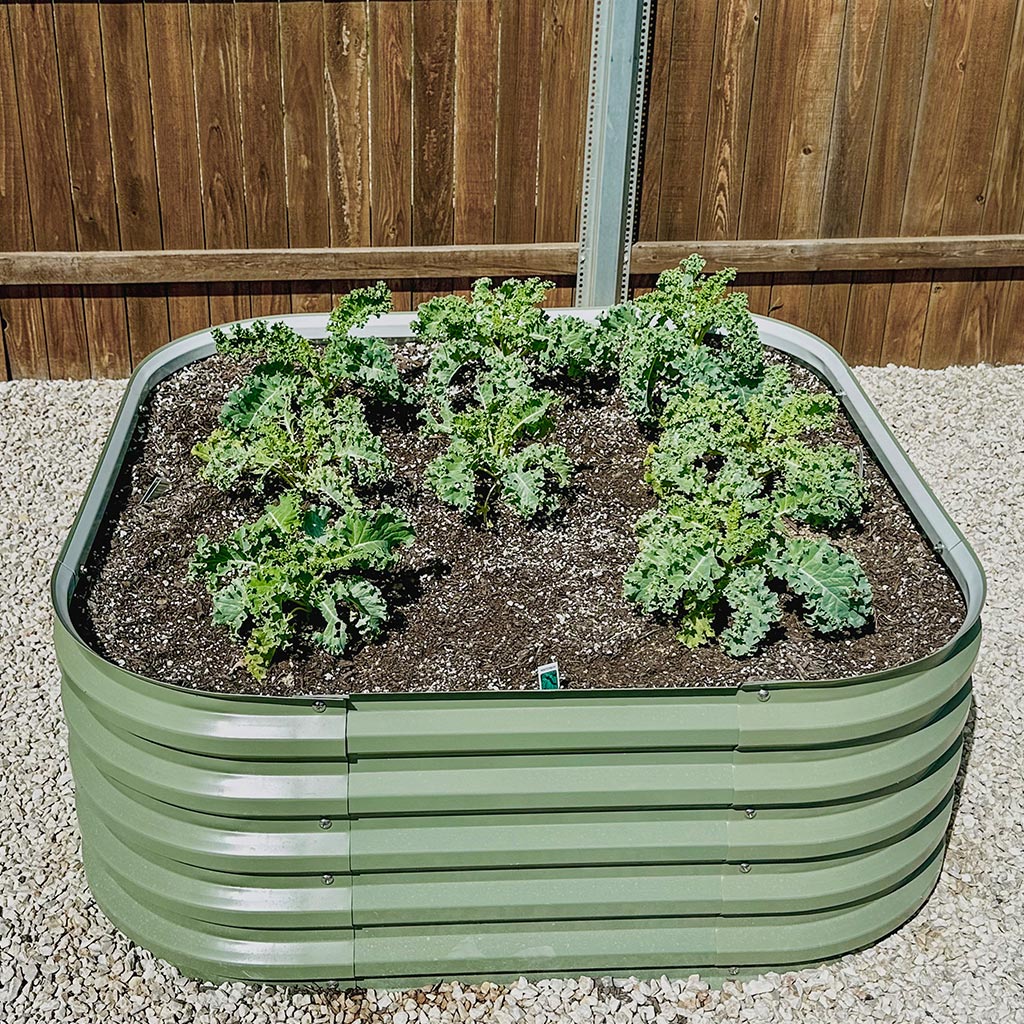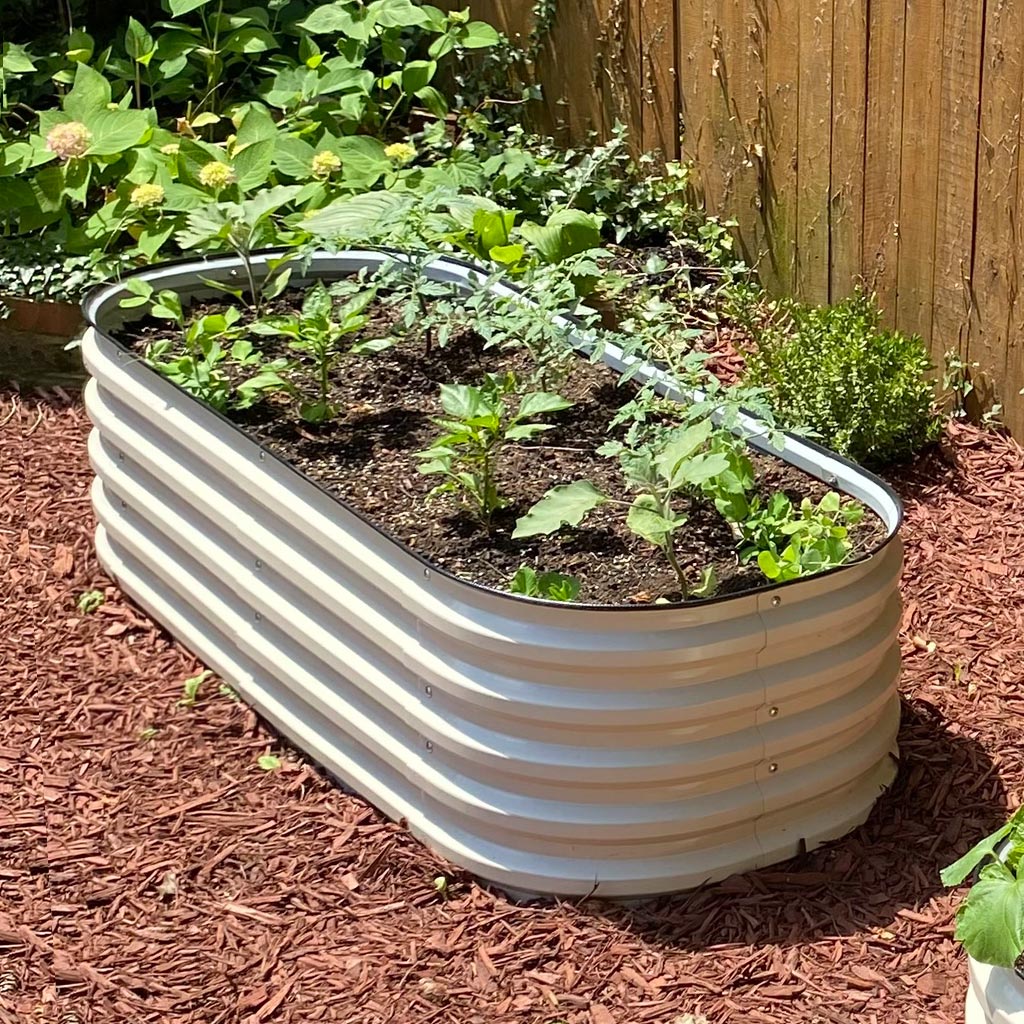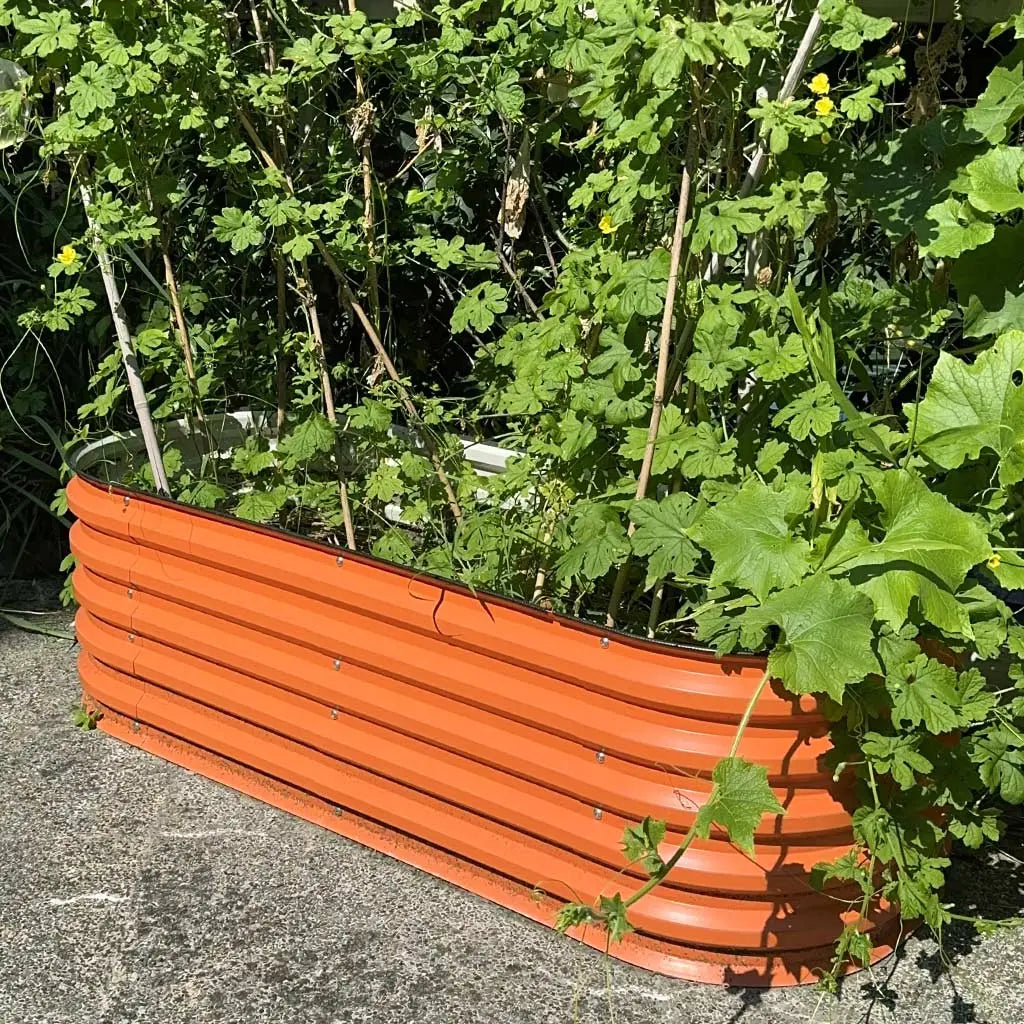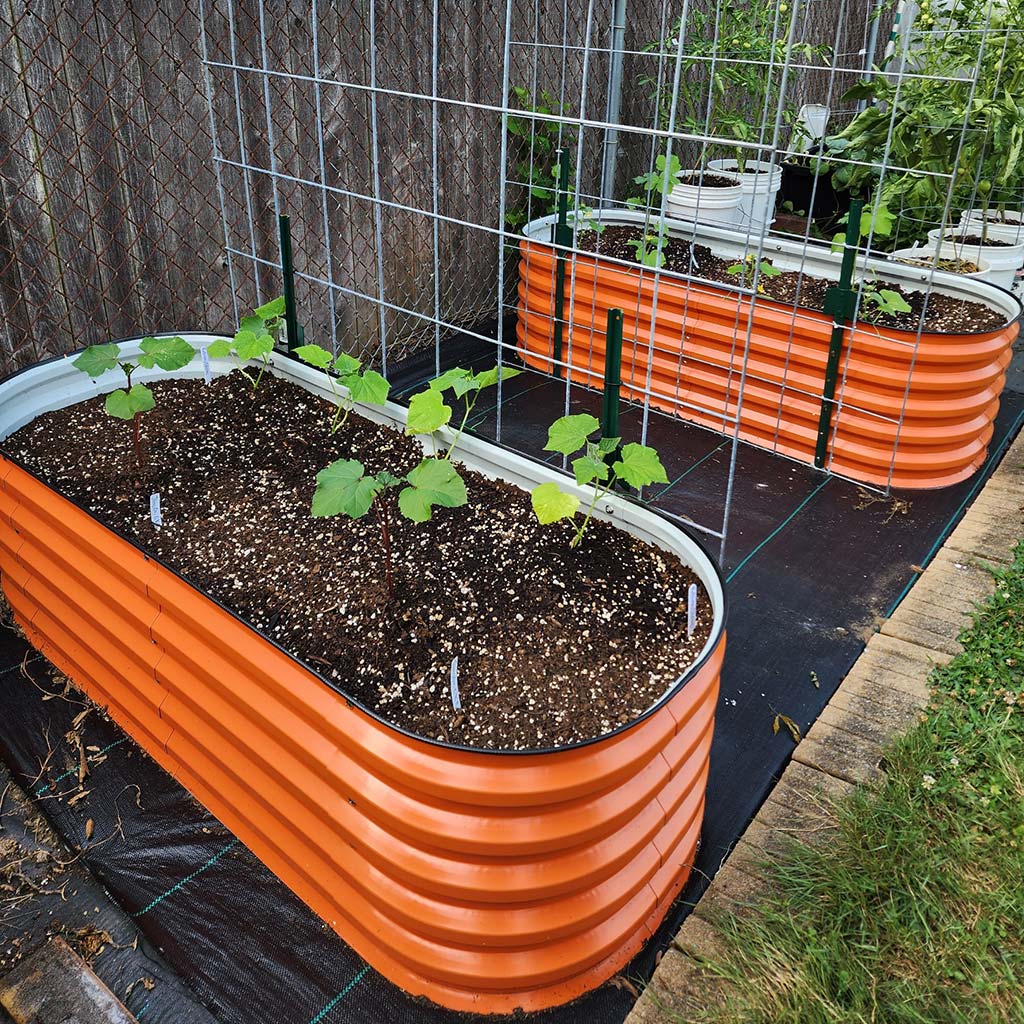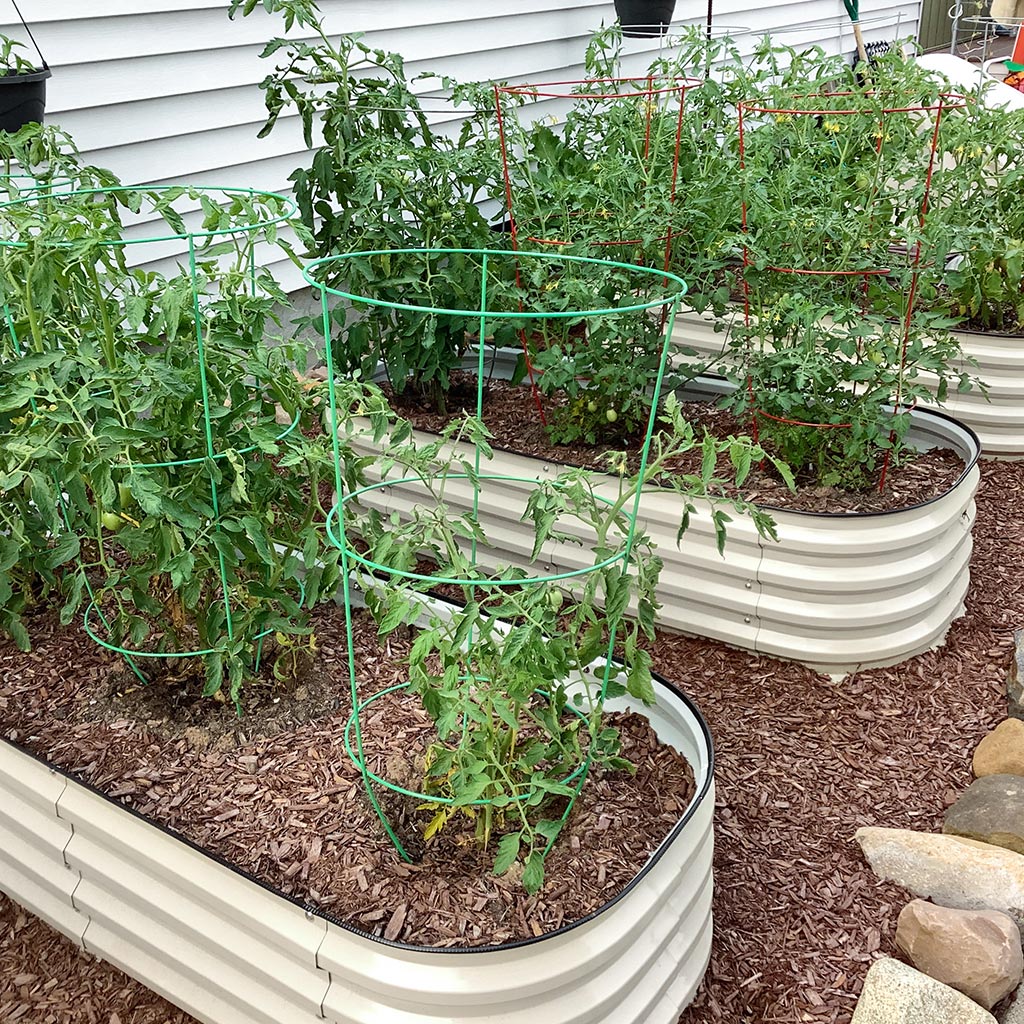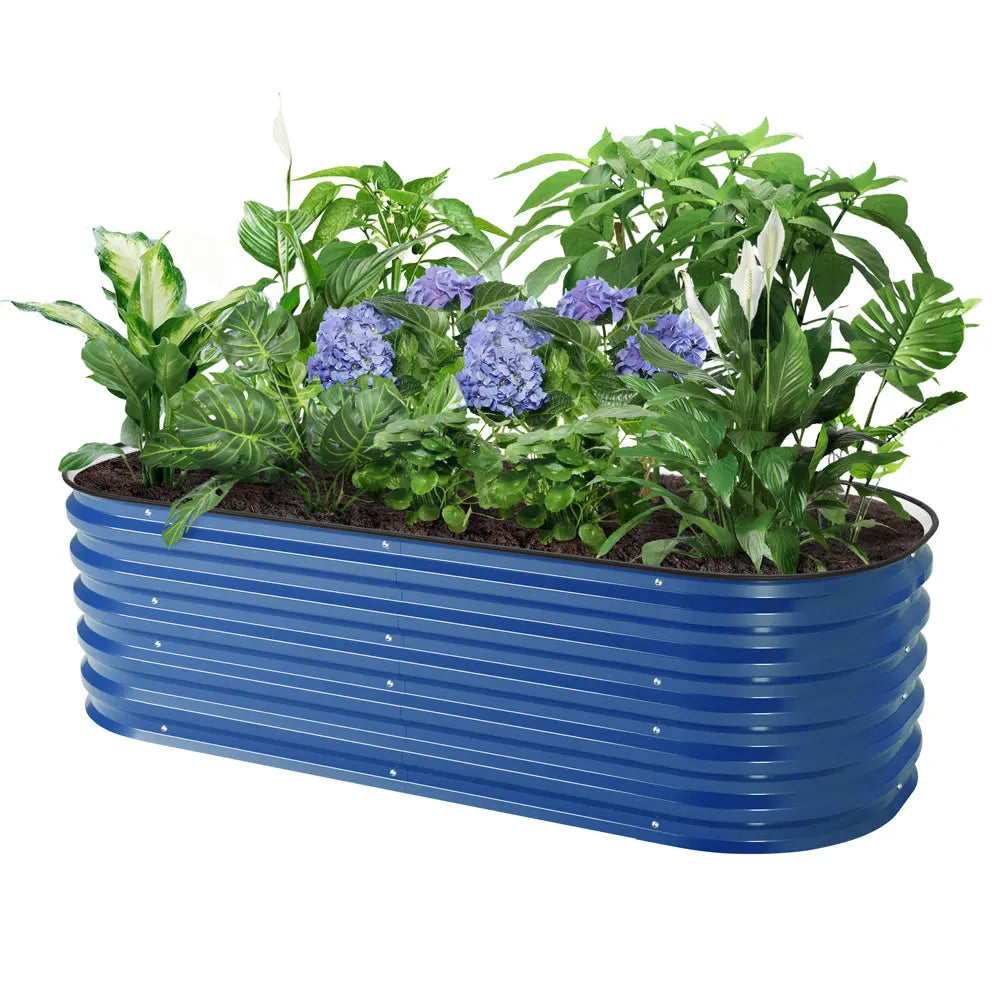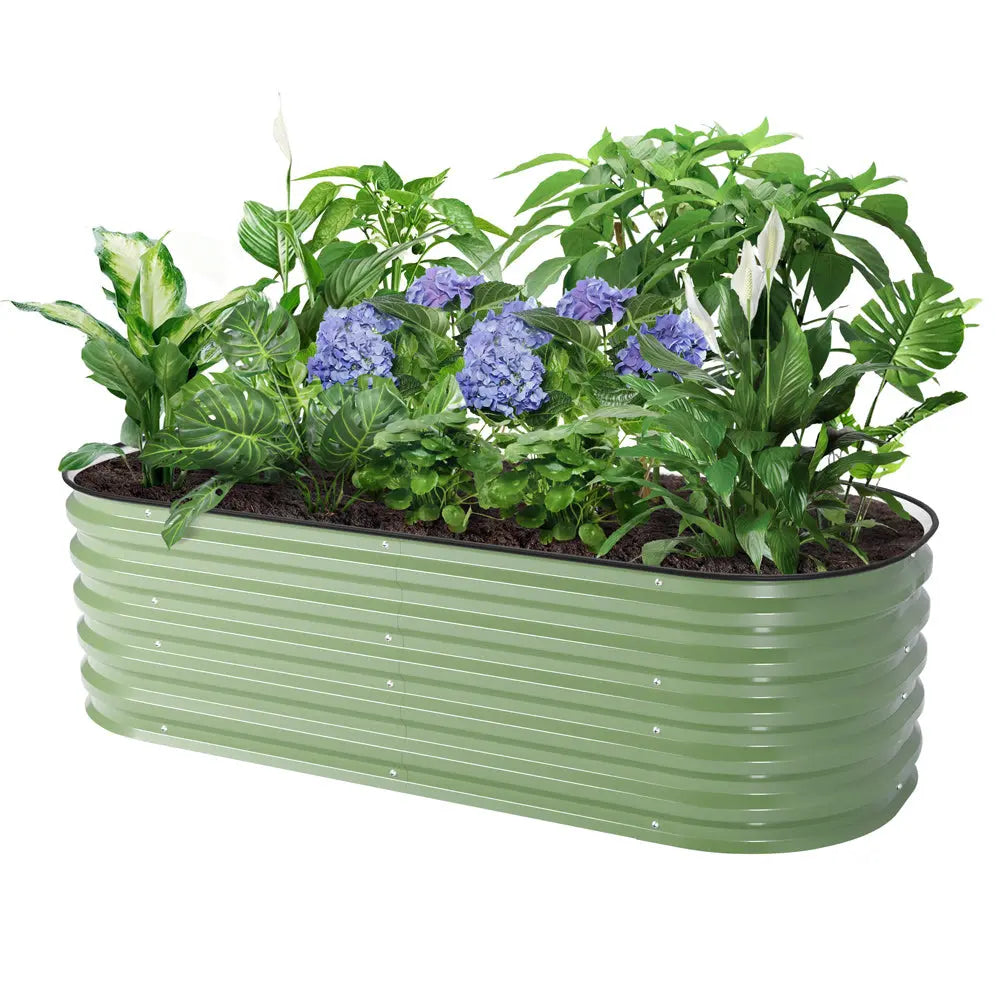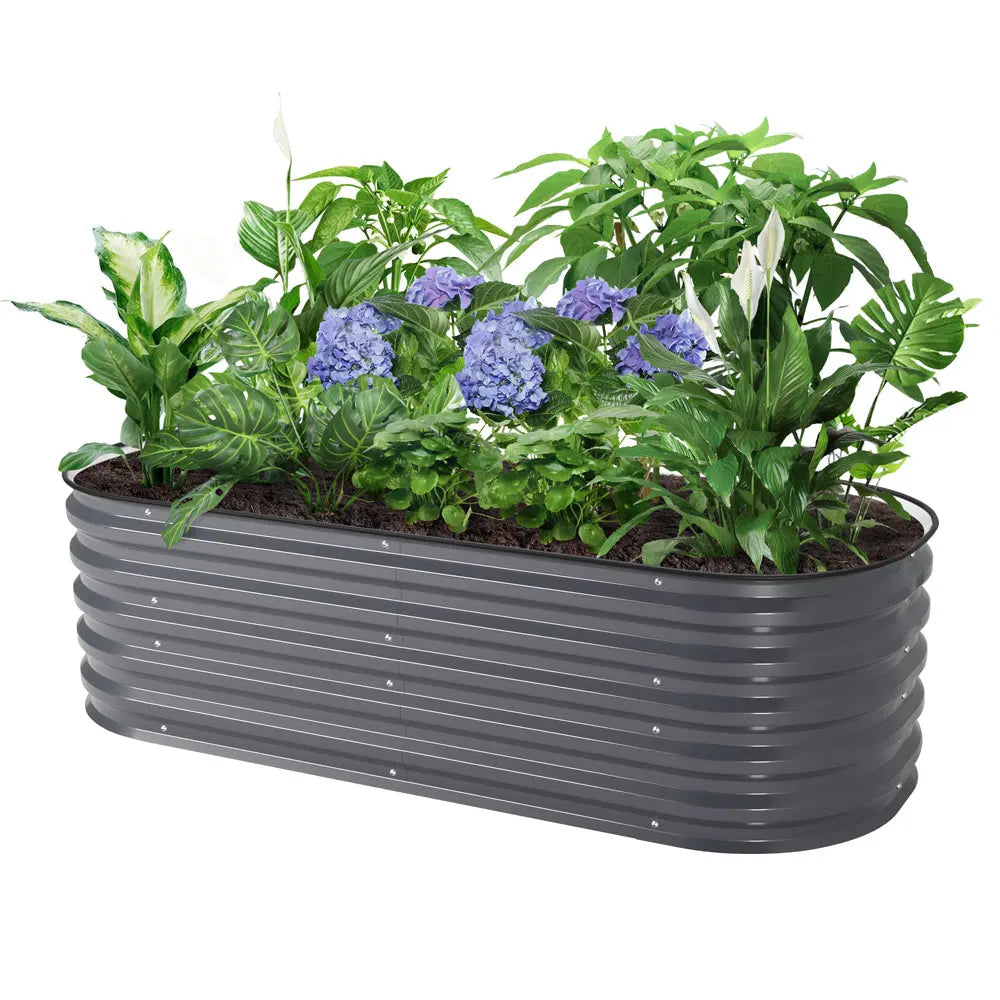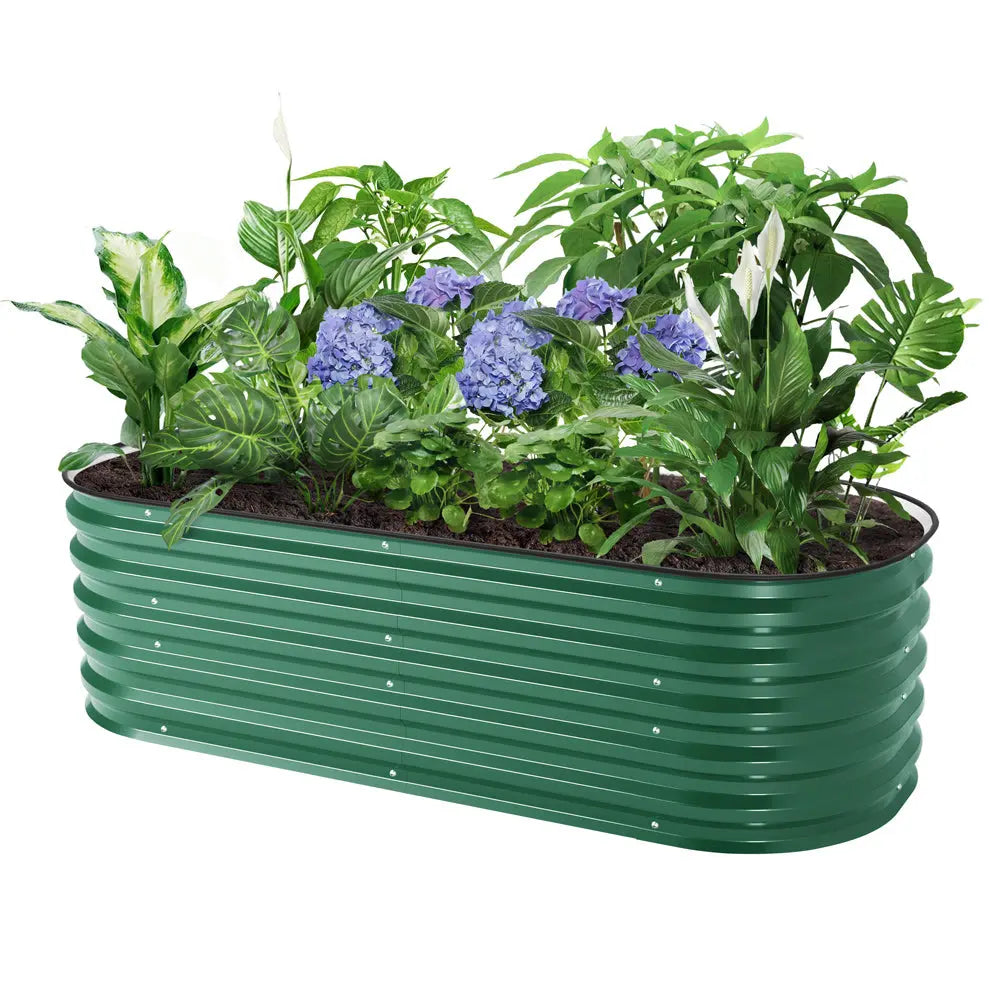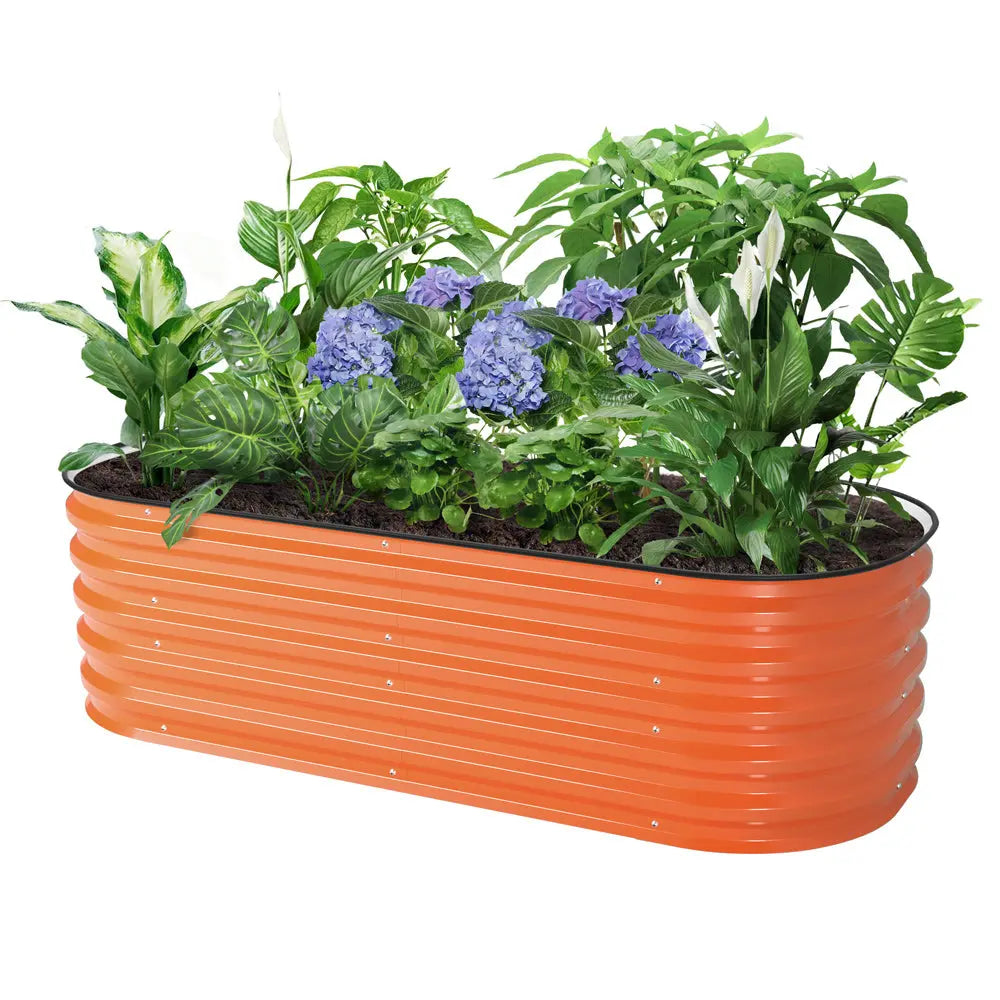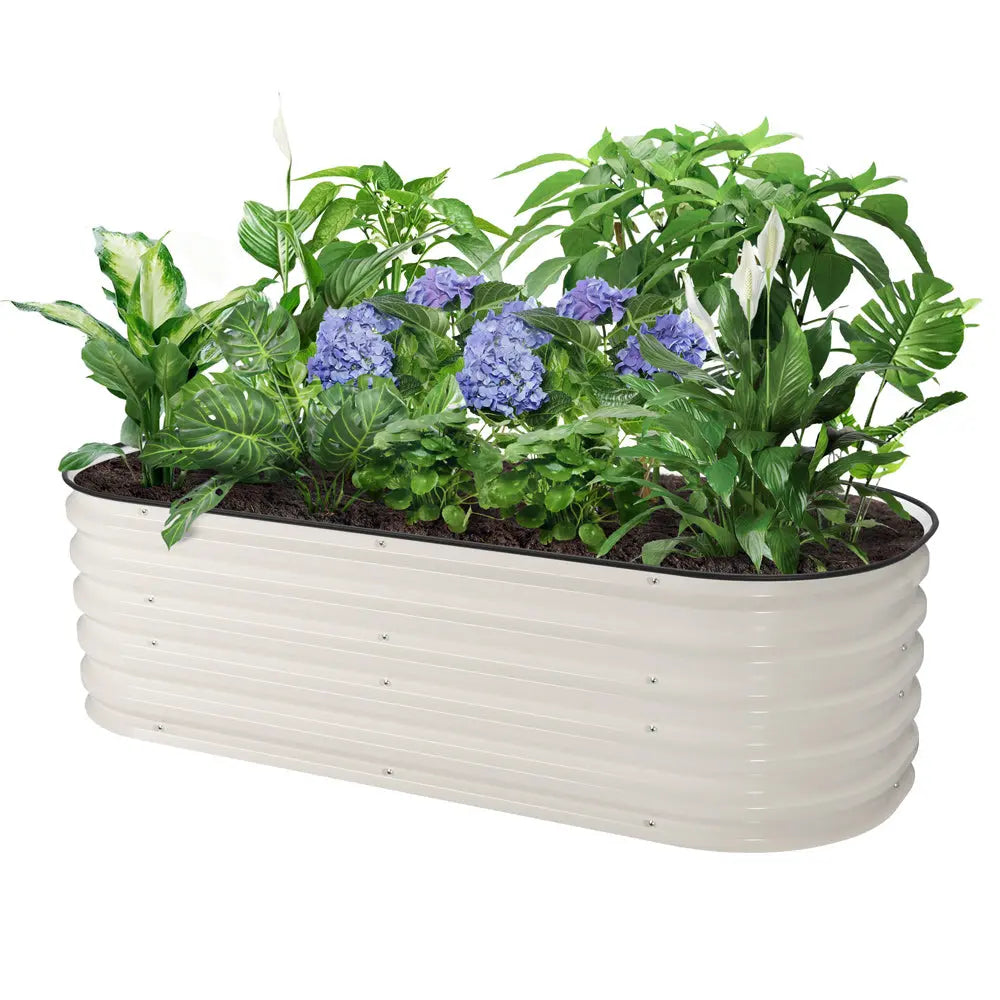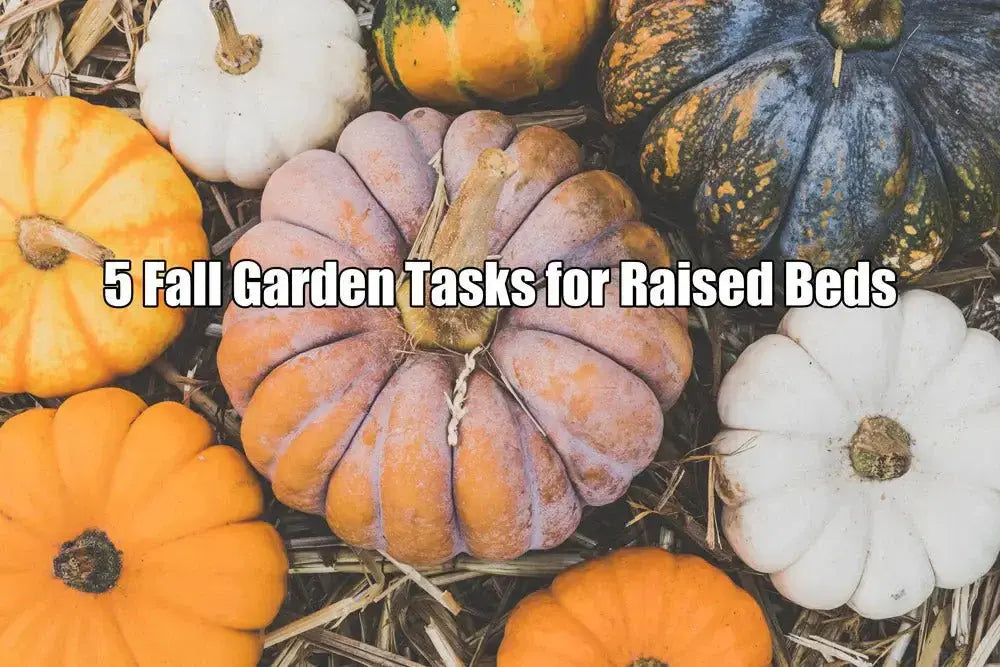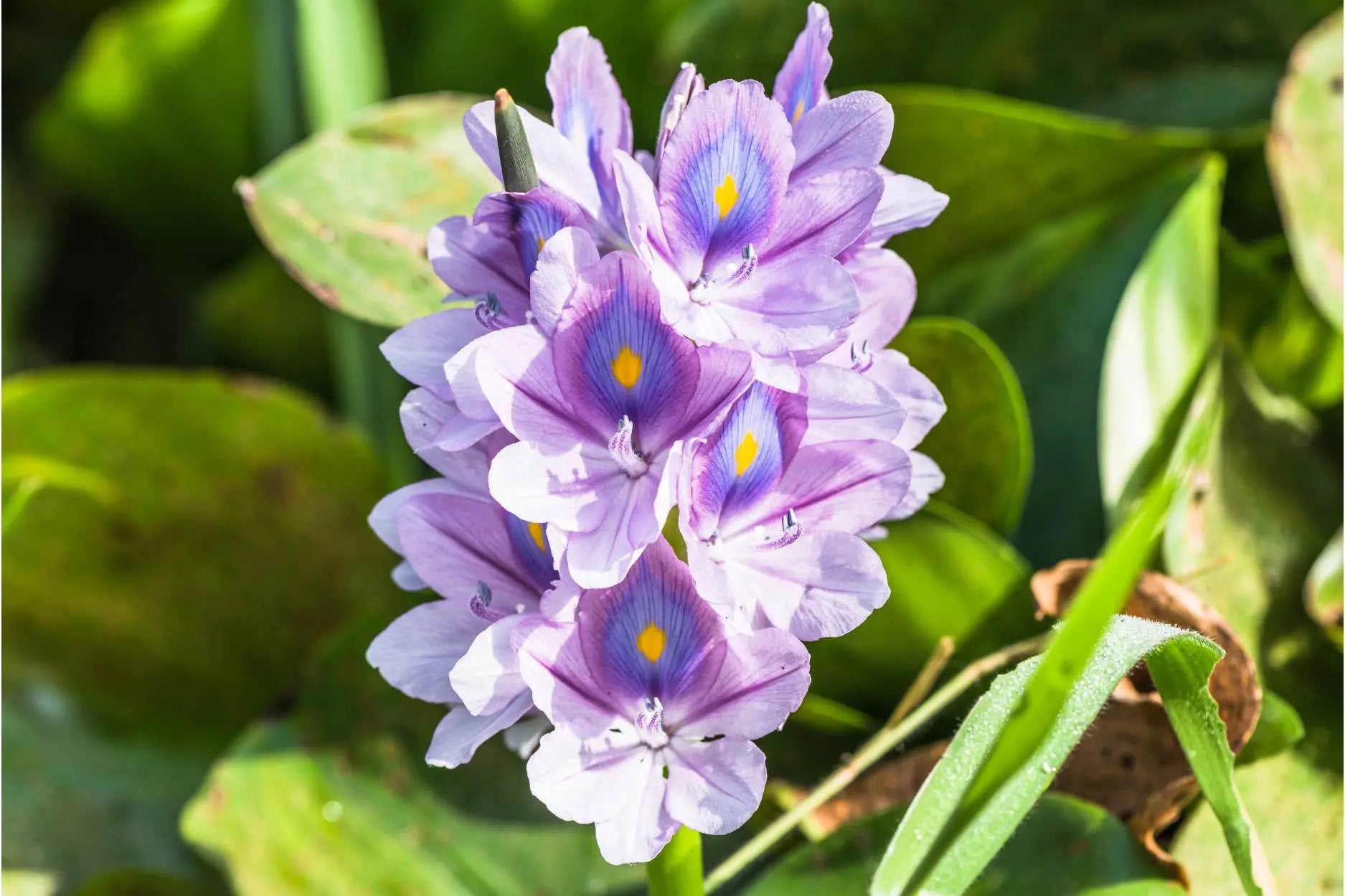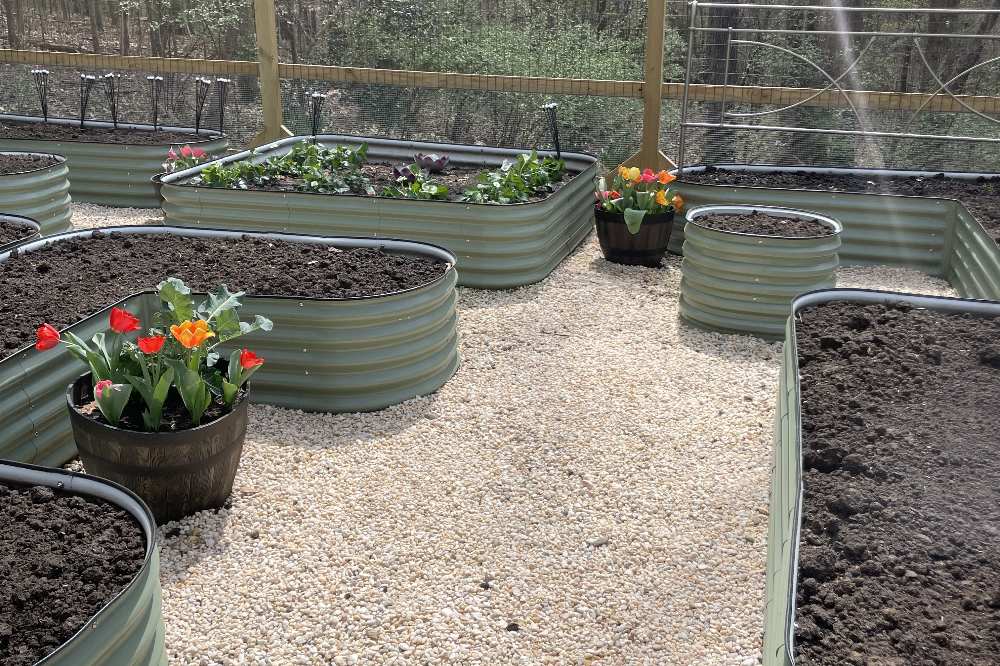What to Plant in July
Planting in July using galvanized raised beds is a very effective method. Not only are galvanized raised beds durable, but they can help retain soil moisture and are especially suited to the heat of summer. The plants that are suitable for planting vary in different agricultural zones. Below are suggestions for galvanized beds to grow plants in July.

What Vegetables to Plant in July
Carrots (US zone 2a, 2b, 4a, 4b, 5a, 5b, 6a, 6b)
Carrots sown in July will be harvested in late November or early December. In the early and middle stages of growth in hot weather, irrigation and watering should be done, and sowing should not be too dens, 5–30 cm is best. If the weather in your area is dry, you can cover the soil with mulch to keep moisture and cool it.
Companion plants: onions, leeks, lettuce, sage, peas, radishes, tomatoes, beans, celery, rosemary
Avoid growing near: parsnip, beetroot, dill, brassica, and fennel.

Lettuce (US zone 2a, 2b, 5a, 5b, 6a, 6b)
Lettuce has a shallow root system and can be sown in an 11-inch metal flower bed or 17-inch raised garden beds and harvested in 8–12 weeks. Daily watering is required in hot or dry weather to prevent bitterness. Soil temperatures ranging from 46°F to 81°F are ideal for planting. And they should be 8 to 12 inches apart.
Companion plants: carrots, onions, strawberries, beets, radishes, marigolds, borage, fennel, leeks.
Avoid being close to: parsley, celery, and carrots.
Kale (US zone 2a, 2b, 3a, 3b, 4a, 4b, 5a, 5b, 6a, 6b)
In July, kale can be sown directly in the garden bed and harvested within 7–10 weeks without having to be incubated in seed trays waiting for germination. Sowing spacing is best kept at 20–39 inches. Soil temperatures range from 46°F to 86°F.
Kale is sun-loving and drought-tolerant. During planting, place it in a well-lit environment and keep the soil moist. When watering, pour the water directly into the soil to avoid watering the leaf core.
Companion plants: celery, cucumbers, onions, marigolds, rhubarb, and herbs (sage, dill, chamomile).
Avoid growing close to: tomatoes, peppers, eggplants, strawberries.

Bok Choy (US zone 2a, 2b, 3a, 3b, 4a, 4b)
Bok choy can be grown year-round in most areas, which is very hardy and productive. It is suitable for direct sowing in garden beds and can generally be harvested in 6–11 weeks. Planting temperatures range from 70°F to 86°F.Maintain a planting spacing of 12 to 16 inches.
Companion plants: beets, celery, cucumbers, onions, rhubarb, herbs (sage, dill, chamomile, parsley), lettuce, potatoes
Avoid: climbing (pole) beans, tomatoes, peppers, eggplant, strawberries.
Collards (US zone 2a, 2b, 6a, 6b, 9a, 9b, 10b)
The best feature of collard is their plump green leaves, which can be used as both a vegetable and a garden plant. The best time to pick is before they reach their maximum size. In July, collards can be sown directly in the raised planter at soil temperatures of 46°F to 86°F, spaced 16–20 inches apart, and generally harvested in 8–11 weeks.
Companion plants: dwarf (bush) beans, beets, celery, cucumbers, onions, rhubarb, sage, dill, chamomile.
Avoid: climbing beans, tomatoes, peppers, eggplants, strawberries.
Rocket (US zone 2a, 2b, 3a, 3b, 6a, 6b, 7a, 7b)
Organic rocket prefers a warm, moist environment and grows well in rich soil, so it can be sown directly in the garden bed and harvested in about 21–35 days. Soil temperatures range from 50°F to 77°F. They should be 6-8 inches apart.
Companion Plants: Lettuce

Summer Savory (US zone 2a, 2b, 3a, 3b, 4a, 4b)
Summer savory prefers well-drained soil in full sun. Suitable for soil temperatures ranging from 64°F to 86°F, with 10 inch spacing.Harvest in about 6-10 weeks. Harvest before the flowers form for the best flavor.
Companion Plants: Beans, Onions
Mustard greens (US zone 5a, 5b, 6a, 6b, 7a, 7b)
Mustard greens are best sown at soil temperatures between 50°F and 95°F, with planting spacing of 14–24 inches. They are fast growing and can be harvested in 5–8 weeks.
Mustard greens are planted with a plant that is basically a ground-hugging kind of plant, so it can easily mix with other weeds, so mustard greens are best sown using a garden bed, which will reduce weed growth.
Companion plants: dwarf beans, beets, celery, cucumbers, onions, marigolds, goldenrod, rhubarb, and herbs.
Avoid close proximity to: tomatoes, peppers, eggplants, strawberries.
Cowpeas (US zone 9a, 9b, 10a, 10b)
Cowpeas planted in July have a relatively high water requirement from sowing to harvest and need to be watered promptly if the weather is dry. Cowpeas are usually harvested within 11–14 weeks after sowing, and soil temperatures should ideally be between 59 °F and 95 °F at the time of sowing. Maintain a row spacing of one metre.

Broccoli (US zone 8a, 8b, 10a, 10b)
Broccoli sown in March can be harvested in June, while broccoli sown in July can be harvested in 10–16 weeks. Broccoli likes a warm and moist growing environment, so use a garden bed to grow in more permeable soil.
Keep soil temperatures between 45°F and 86°F and rows 14-20 inches apart when planting.
Companion plants: beets, celery, cucumbers, onions, aromatic herbs (sage, dill, chamomile, oregano).
Avoid growing close to: climbing beans, tomatoes, peppers, eggplant, strawberries, and mustard.
Plant Care in July

Temperatures are still high in July. Raised garden beds absorb most of the heat from the sun. Among the methods of physically cooling plants, the use of mulch is one of the most common methods to keep soil moisture, breathable and cool. Most of the plants are ready for harvest, although in July, the spring growth of the plants is over. In July, it is still a strong period for the growth of many plants. Therefore, the garden maintenance work in July cannot be ignored.
- Planting: Plant in July with proper space between plants. Plants need enough space between the individual plants to ensure completely healthy growth.
- Watering: Hot weather can easily cause plants to lack water, so watering is very important. It is best to water in the morning and evening. Be careful not to do it at noon. Watering when the temperature is the highest can easily damage the roots of the plant. For more details, please refer to the article: When is the Best Time of Day to Water the Raised Garden Bed?
- Pruning: If trees and flowers are planted, pruning should be done in July. In summer, the growth of branches and leaves slows down. Gardeners should prune according to the growth conditions of the plants so as to achieve the effect of ventilation, light transmission, and clear layers.
17" Tall 5x2 Corrugated Metal Raised Beds (4 in 1)【Upgrade 2.0】
Our corrugated metal raised beds are the ideal solution for growing a wide variety of plants. Crafted from heavy-duty Zn-Al-Mg steel, these raised beds combine exceptional strength with smart design. The elevated, bottomless structure promotes superior drainage and ensures your plants receive ample sunlight and airflow for optimal growth. At the same time, the stylish corrugated panels bring a touch of modern charm to your garden—function meets form.
Why Choose Corrugated Metal Raised Beds?
Durable Design for Longevity
The 17" Tall 5x2 Corrugated Metal Raised Beds are crafted from high-quality materials that ensure durability. Because these beds are made of corrugated metal, they resist rotting and are less likely to be damaged by pests compared to wooden alternatives. Gardening can be a rewarding hobby, and investing in long-lasting raised beds means you can nurture your plants without the worry of frequent replacements or repairs.
Enhanced Drainage and Soil Quality
One of the significant benefits of using corrugated metal raised beds is the improved drainage they offer. The metal allows water to escape efficiently, preventing root rot. Additionally, you can control the soil quality in these beds, so your plants thrive better. If you wish to cultivate various plants, including vegetables and flowers, having control over nutrition is essential, and these beds make it easy to maintain optimal soil conditions.
Easy to Assemble and Maintain
These raised beds are designed for easy assembly, making it possible for anyone to set them up quickly. The modular design means you can customize your layout easily, allowing flexibility in your garden. Once installed, maintaining the beds is a breeze because the sturdy materials won't warp or break down like traditional options. Therefore, you can spend more time enjoying your garden and less time on upkeep.
How to Start a Herb Garden in Corrugated Metal Beds
Creating a herb garden has never been easier. With proper soil, sun, and care, these metal raised beds become the perfect home for culinary herbs:
-
Use a High-Quality Potting Mix
Choose well-draining soil enriched with compost or organic matter for healthy root development. -
Plant Compatible Herbs Together
Group herbs with similar needs—like basil, rosemary, thyme, mint, and oregano—to encourage balanced growth. -
Mind the Spacing
Allow enough room between herbs to avoid overcrowding and ensure they receive plenty of light and nutrients. -
Pick a Sunny Spot
Most herbs need 6–8 hours of sunlight daily, so position your bed in a well-lit area. -
Prune Regularly
Frequent pruning and harvesting encourage fuller, bushier plants and prevent early flowering.
Elevate your gardening experience with Vegega’s corrugated metal raised beds. They’re durable, stylish, and easy to use—perfect for growing herbs, vegetables, or flowers. Shop now and create a garden space that’s as beautiful as it is productive!
USA Planting Calendar in July-Zone
Below are suggestions for using metal raised garden beds to grow plants in different zones 2a through 13b.
Zones 2a and 2b
Vegetables suitable for these zones include beans, beet, kale, carrot, chives, collard, lettuce, bok choy, onions, spinach, turnip, and radish.
Zones 3a and 3b
Vegetables suitable for these zones include beans, beet, kale, carrot, chives, collard, lettuce, onions, spinach, turnip, savory and radish.
Zones 4a and 4b
Vegetables suitable for these zones include beans, beet, kale, carrot, chives, collard, lettuce, onions, turnip, savory and radish.
Zones 5a and 5b
Vegetables suitable for these zones include beans, beet, kale, carrot, chives, collard, lettuce, onions, turnip, and radish.
Zones 6a and 6b
Vegetables suitable for these zones include beans, beet, kale, carrot, chives, collard, lettuce, onions, turnip, and radish.
Zones 7a and 7b
In these warmer zones, you could consider growing beans, celery, okra, corn, and cauliflower.
Zones 8a and 8b
Vegetables suitable for these zones include beans, beet, broccoli, cabbage, corn, tomato and lettuce.
Zones 9a and 9b
Considering growing climbing beans, beet, collards and kale in these zones.
Zones 10a and 10b
In zones 12a and 12b, you can grow climbing beans, beets, kale, tomatoes, peppers, cucumbers, and herbs like basil and oregano. Ensure your garden beds receive sufficient sunlight to promote healthy plant growth.
Zones 11a and 11b
These zones are not usually planned for planting in July, but try planting heat-resistant tropical vegetables and herbs like okra, pumpkin, chili, rosemary, mint, and thyme.
Zones 12a and 12b
These zones are good for heat-tolerant vegetables like sweet potatoes, peppers, eggplants, okra, and tropical herbs that are ideal for planting.
Zones 13a and 13b
Heat-tolerant plants are recommended in these hot zones, like watermelon, cantaloupe, pumpkin, pepper, okra, eggplant, corn, sweet potato, green beans, and herbs.
